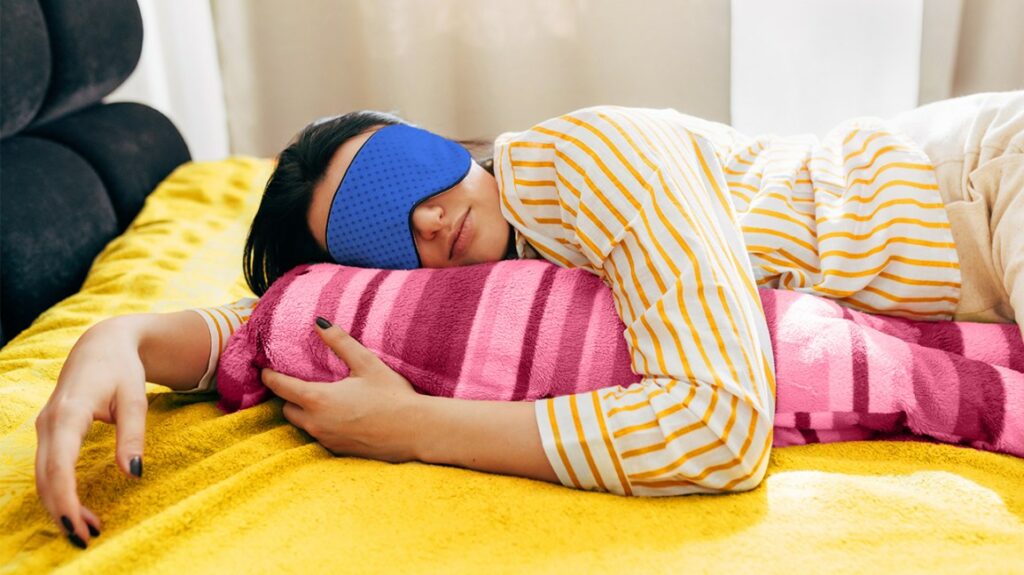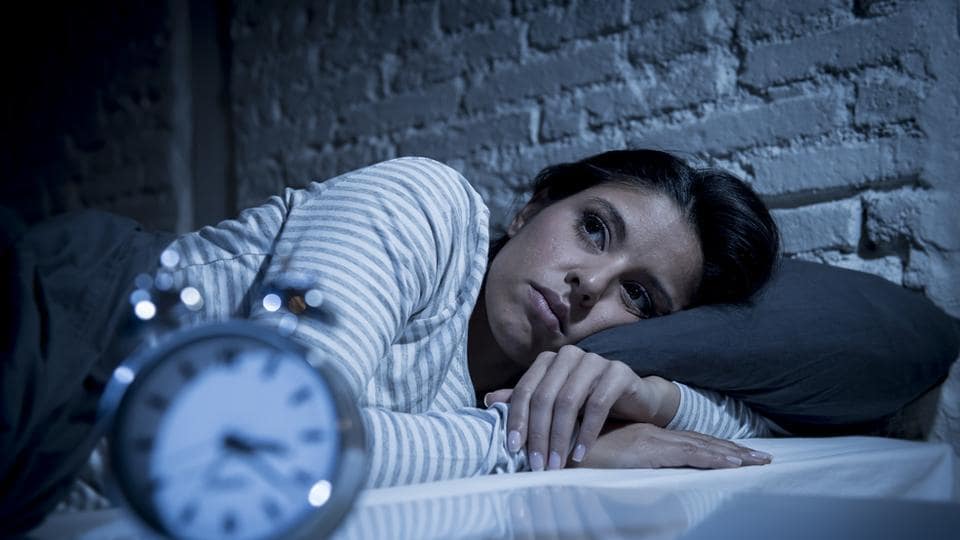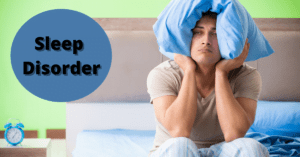Sleep is an important part of life. Without it, people can lose their ability to think clearly and in some cases even die. One way to get better quality sleep is by understanding the causes of sleep problems. There are many reasons why someone may not be able to fall asleep or stay asleep at night, including stress and anxiety. It could also be a medical problem like depression. In this blog post, we will look at possible causes for sleep problems so you know what’s happening when you’re not sleeping well.
Contents
What Is Sleep?
Sleep is a natural, daily state of rest for the body. We usually sleep at night, but there are times when we can take naps during the day. Sleep is necessary for overall health and well-being. It helps us stay alert and focused, maintain our energy levels, fight off illnesses, and repair damage to our cells.
The NSF defines sleep as a time when your body needs to rest and relax. You will need it about every day for several hours at night. There are two basic types of sleep: REM and NREM sleep.
- REM Sleep: REM sleep is the type of sleep where you have most dreams. It stands for Rapid Eye Movement because your eyes move around rapidly during this stage. Your brain is very active during REM sleep, and many experts believe that it’s important for organizing memories and learning new things.
- NREM Sleep: During NREM sleep, your brain waves and heart rate slow down. It is a time of light sleep where you can easily be awakened. Your body uses this type of rest to recover from daily activities and prepare for the next day. This stage makes up about 75% of total sleep each night for adults. Adults
Signs That You Have Sleep Problems
There are many signs that you may not be getting enough good quality sleep.
- Some people snore, have restless legs, or wake up frequently during the night.
- Others feel tired all the time and can’t focus at work or school.
- You may also experience mood swings or problems with your memory and concentration.
- If you’re having trouble sleeping, it’s important to see a doctor to find out what might be causing the problem.
- Many things can interfere with a good night’s sleep, such as stress, anxiety, noise pollution, caffeine, and alcohol.
- It could also be a sign of an underlying health problem like depression or diabetes.
Causes Of Sleep Problems
Many different things can interfere with a good night’s sleep. Some of the most common causes of sleep problems include:
- Stress and anxiety: Stress and anxiety can be one of the major causes of sleep problems. People who are stressed out often have trouble falling asleep or staying asleep. The National Sleep Foundation reports that stress is the number one contributor to poor sleep quality.
- Noise pollution: Noise pollution from traffic, neighbors, or other loud noises can disrupt your ability to fall asleep and get a good night’s rest. Noise can cause sleep problems. Some people are more sensitive to sound than others, especially children and infants.
- Caffeine: Caffeine is a drug. There are many different types of caffeine. Caffeine is found in coffee, tea, soda, energy drinks, chocolate bars, and pain relievers like Advil®, Excedrin®, or Tylenol®. It can also be found in dietary supplements that you take to lose weight. Actions It can interfere with your ability to fall asleep, stay asleep, or get the quality of sleep you need. Avoid caffeine for six hours before bedtime to improve your chances of getting a good night’s rest.
- Alcohol: Alcohol is often considered a sedative because it causes people to feel drowsy. Alcohol can make you less sleepy. It can also cause you to wake up at night during the day.
- Depression: Depression is a mood disorder that can disrupt your sleep patterns and make it difficult to fall or stay asleep. People who are depressed often have trouble sleeping for extended periods and report frequent waking during the night.
- Diabetes: Diabetes is a disease that makes it difficult for your body to break down sugars, which can cause you problems with sleep. People who have diabetes may need less sleep than others because of their condition.
Other causes include poor mattress quality, too much light in the bedroom, and lack of exercise throughout the day.
Types Of Sleep Problems That May Occur
There are a few different types of sleep problems that may occur:
- Insomnia: Insomnia is the most common type of sleep problem. People who suffer from insomnia have difficulty falling asleep, staying asleep, or getting quality restful sleep.
- Sleep apnea: Sleep apnea is a condition where you stop breathing for short periods during sleep. This can cause you to wake up frequently and not get the deep sleep you need.
- Restless legs syndrome (RLS): RLS is a condition where you feel an uncontrollable urge to move your legs when you’re trying to fall asleep or relax. This often results in restless and poor-quality sleep.
- Narcolepsy: Narcolepsy is a condition that causes people to fall asleep suddenly and without warning. This can lead to problems with sleeping through the night or getting quality restful sleep.
- Periodic limb movement disorder (PLMD): PLMD is a condition where you move your arms and legs involuntarily during sleep. This often results in restless and poor-quality sleep.
When Do Sleep Problems Occur?
Sleep problems can occur at any time in life. However, they are most common during childhood, adolescence, and middle age.
- Children: Many children have sleep problems. At birth, babies sleep for about 16 hours per day. They wake up every 3 to 4 hours. When people are two months old, they usually sleep for 12 to 18 hours each day. People may take five-hour stretches at night and one to two-hour naps during the day. As they get older, children’s sleep needs may change. Toddlers (ages one to three) need 11 to 14 hours of sleep each day, including a nap in the daytime. Preschoolers need about ten hours of sleep per day. This includes a nap in the afternoon. School-age children (six to 13 years old) need nine to eleven hours of sleep each day. Teenagers (14 to 17 years old) need eight to ten hours of sleep per day.
- Adolescents: The National Sleep Foundation reports that 50% of adolescents report sleeping less than seven hours on school nights. This is not enough rest for their growing bodies and can lead to problems in school, such as falling asleep in class.
- Middle-aged adults: Middle-aged adults (ages 30 to 60) often have trouble sleeping because their bodies are going through many changes. Hormonal changes, pain from arthritis, and snoring can all keep people up at night.
- Older adults: Older adults (ages 65 and older) usually need less sleep than other age groups. Many people in this age group wake up frequently during the night or get up early in the morning and cannot go back to sleep. However, some people do not adjust well to getting less sleep and may suffer from insomnia.
Tips To Deal With The Causes Of Sleep Problems
There are a few things you can do to help deal with sleep disorders:
- See your doctor: If you have trouble sleeping, see your doctor. He or she may be able to help identify the cause of your problem and suggest treatment options.
- Create a bedtime routine: A bedtime routine can help signal your body that it’s time for sleep. Try winding down for 30 minutes before bed by reading, taking a bath, or listening to calming music.
- Avoid caffeine and alcohol: Avoid drinking caffeinated drinks like coffee and soda or alcoholic drinks close to bedtime. These beverages can keep you up at night.
- Get regular exercise: Exercise is important for good health overall, and it also helps improve sleep quality. Try to get at least 30 minutes of moderate exercise on most days.
- Create a comfortable environment: Make sure your bedroom is dark, quiet, and cool. Use soft sheets and limit noise and light exposure in the hours before bedtime.
- Use relaxation techniques: Relaxation techniques like yoga or meditation can help promote sleepiness.
If you continue to have trouble sleeping after trying these tips, talk to your doctor about other treatment options.
How to Help Someone With Sleep Disorders?
If you know someone who has difficulty sleeping, there are things you can do to help:
- Create a relaxing environment: Make sure the person’s bedroom is dark, quiet, and cool. Limit noise and light exposure in the hours before bedtime.
- Encourage exercise: Exercise is important for good health overall, and it also helps improve sleep quality. Try to encourage the person to get at least 30 minutes of moderate exercise on most days.
- Avoid caffeine and alcohol: Avoid drinking caffeinated drinks like coffee and soda or alcoholic drinks close to bedtime. These beverages can keep the person up at night.
- Provide a comfortable environment: Make sure the person’s bedroom is comfortable, with soft sheets and limited noise and light exposure.
- Encourage relaxation techniques: Yoga or meditation can help the person relax before bed.
If you continue to have trouble sleeping after trying these tips, talk to your doctor about other treatment options.
Conclusion
Sleep is a natural, but elusive state for many people. The human body has evolved to sleep during the night and be awake during the day to take advantage of light from the sun. This circadian rhythm can get disrupted when we stay up late or wake up early, which may lead us to feel tired even though our bodies are active at that time of day. One way to establish better sleeping habits is by going on vacation so your brain doesn’t have any external cues telling it what time it should be!
For more information, please contact MantraCare. Sleep is an essential part of our daily routine and it plays a significant role in maintaining a healthy body and mind. If you have any queries regarding Online Insomnia Counseling experienced therapists at MantraCare can help: Book a trial therapy session









